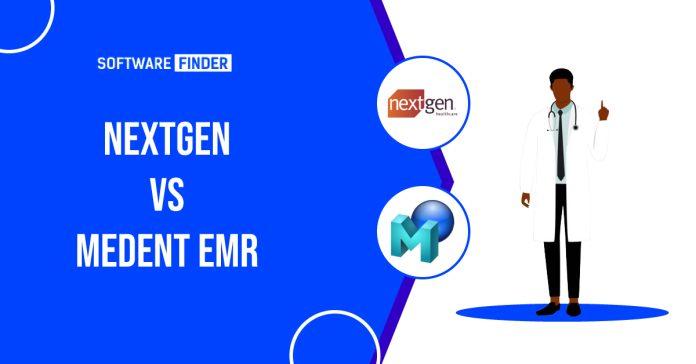Introduction:
Electronic health record (EHR) and electronic medical record (EMR) systems have become integral components of modern healthcare practices. They streamline patient data management, improve efficiency, and enhance overall patient care. In this report, we will compare and contrast two popular software solutions: NextGen EHR and Medent EMR. By examining their features, functionality, usability, and customer satisfaction, we aim to provide insights into their respective strengths and weaknesses.
Features and Functionality:
NextGen EHR: NextGen offers a comprehensive set of features, including clinical documentation, e-prescribing, patient scheduling, billing and coding, reporting and analytics, interoperability, and population health management. It supports customizable templates, automated workflows, and decision support tools for improved clinical decision-making.
Medent EMR: Medent focuses on delivering a user-friendly experience with its feature-rich EMR system. Its key functionalities include appointment scheduling, electronic prescribing, billing and coding, document management, clinical templates, and e-fax capabilities. Medent also offers integration with external systems, such as laboratories and pharmacies.
Usability and Interface
NextGen EHR: NextGen’s interface may initially appear complex, requiring some training for users to fully navigate and utilize its features. However, once users become familiar with the system, it offers a robust and customizable interface. Its flexible workflows allow for tailoring the software to specific practice needs, enabling efficient documentation and task management.
Medent EMR: Medent prides itself on its intuitive and user-friendly interface. Its design focuses on simplicity and ease of use, making it accessible to both technologically adept and less experienced users. The software employs a consistent layout, reducing the learning curve and enhancing productivity.
Interoperability and Integration:
NextGen EHR: NextGen prioritizes interoperability by supporting industry standards such as HL7 and FHIR. It facilitates seamless data exchange between different healthcare systems, enabling efficient collaboration and sharing of patient information. NextGen also offers integration capabilities with third-party applications, expanding its functionality and providing a more comprehensive solution.
Medent EMR: Medent emphasizes interoperability by integrating with external systems, including labs, pharmacies, and imaging centers. This integration streamlines workflows and enhances efficiency by eliminating the need for manual data entry. Medent’s commitment to interoperability ensures a smooth flow of information across different healthcare entities.
Customer Satisfaction:
NextGen EHR: NextGen has garnered mixed reviews from users. While some appreciate its extensive feature set and customizable options, others have reported challenges with the system’s usability and customer support. Additionally, some users have found the software’s implementation process to be time-consuming and complex.
Medent EMR has generally received positive feedback from users, with many highlighting its user-friendly interface, ease of use, and responsive customer support. Users commend Medent for its efficient implementation process and the software’s adaptability to various medical specialties.
Cost and Scalability:
NextGen EHR: The cost of NextGen EHR can vary depending on the size and specific needs of the healthcare organization. It typically involves upfront implementation fees, licensing costs, and ongoing maintenance fees. NextGen offers scalability options to accommodate the growth of practices, making it suitable for both small clinics and large healthcare systems.
Medent EMR: Medent follows a subscription-based pricing model, where users pay a monthly fee per provider. The cost is typically lower compared to NextGen EHR, making it a more affordable option for smaller practices. Medent also provides scalability options, allowing practices to add or remove providers as needed.
Support and Training:
NextGen EHR: NextGen offers training and support resources to help users navigate the system effectively. This includes online training modules, user forums, and documentation. However, some users have reported challenges with NextGen’s customer support, citing delayed response times and difficulty in resolving issues promptly.
Medent EMR: Medent provides comprehensive training and support services, including on-site training, webinars, and a dedicated customer support team. Users appreciate Medent’s responsive support system, with reports of quick response times and efficient issue resolution.
Conclusion:
Both NextGen EHR and Medent EMR are robust software solutions that cater to the needs of healthcare providers. NextGen offers an extensive feature set, customizable options, and a focus on interoperability and population health management. On the other hand, Medent prioritizes user-friendliness, intuitive interface, and seamless integration with external systems.
The choice between NextGen EHR and Medent EMR ultimately depends on the specific requirements and preferences of healthcare practices. It is essential for healthcare providers to carefully evaluate their needs, conduct thorough demos and trials, and consider user feedback and testimonials before making a final decision.
Overall, the decision to adopt NextGen EHR or Medent EMR should be based on a comprehensive assessment of the software’s features, functionality, usability,
